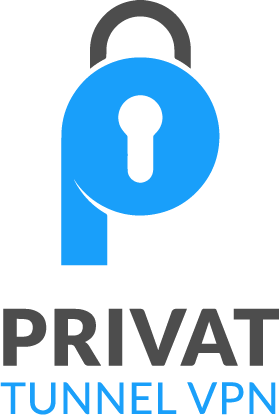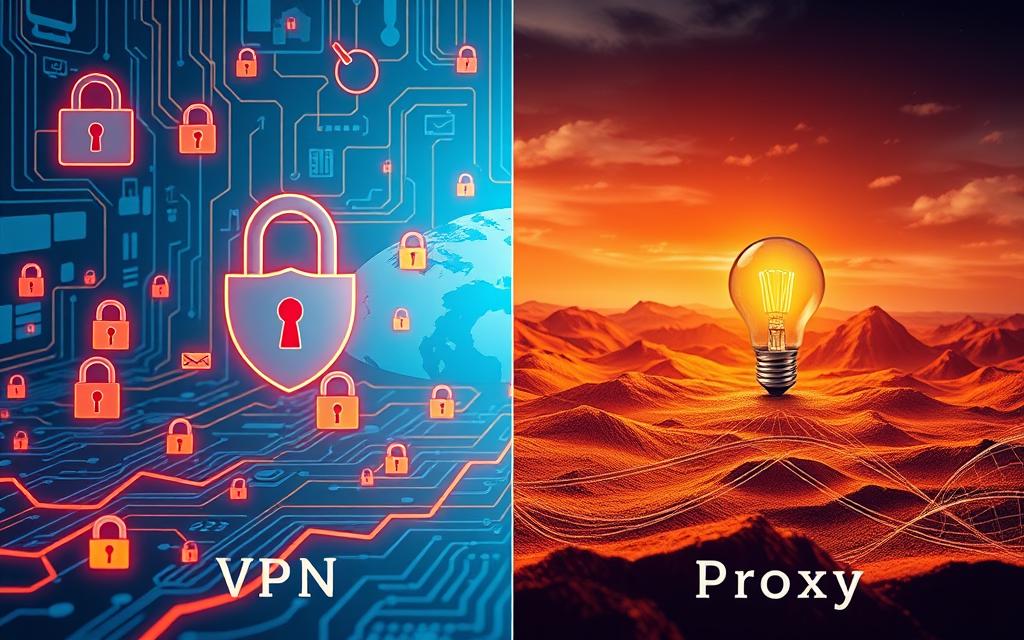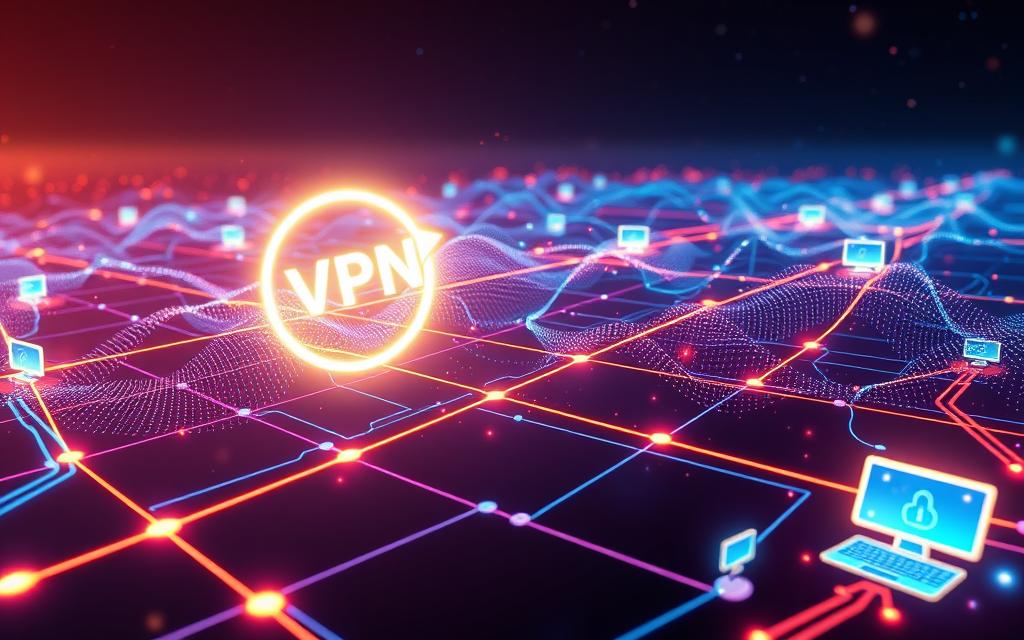VPN vs Proxy: Which One Is Better For Online Privacy
Discover the differences between VPN vs Proxy, their pros and cons, and which is best for securing your online activity and protecting your privacy.
Do you ever wonder if your online privacy is truly secure as you navigate the vast digital world? The debate between using a VPN and a proxy for anonymity is more relevant than ever.
But here’s the million-dollar question: When it comes to safeguarding your online activities, which tool is the true guardian of privacy – a VPN or a proxy?
As we explore digital privacy, let’s look at VPN benefits and the role of a proxy in keeping you anonymous. It’s not just about hiding your browsing history; it’s a battle for control in a landscape where personal data can be a commodity. Join us as we dissect these privacy tools to find out which will be your champion in the era of ceaseless data tracking and threats to personal identity.
Together, we’re going to dive deep into VPNs and proxies. We’ll give you the knowledge to make an informed decision. So, are you ready to empower your online privacy with us? Let’s get started.
Understanding Online Privacy
In today’s digital world, keeping our online privacy safe is crucial. As we use websites and apps, our digital trail grows. This trail is often watched by others. We’ll explore how to manage these digital tracks and keep our privacy safe from unwanted tracking.
The Importance of Protecting Your Digital Footprint
Every online action we take leaves a digital mark. Good digital footprint management reduces the chance of our personal info being misused. It also gives us more control over what we share online.
How Your Online Activity Can Be Tracked
Tracking online activity happens in many ways, like through cookies and IP tracing. Browser fingerprinting is another, more complex method. Knowing these methods helps us take steps to protect our privacy.
Basic Tools for Enhancing Privacy: VPN and Proxy
Tools like VPNs and proxies are key to fighting privacy threats. They make our online identity anonymous and keep our data safe from prying eyes. Here’s how they work:
| Tool | Function | Use-case |
|---|---|---|
| VPN (Virtual Private Network) | Encrypts internet traffic | Securing data on public Wi-Fi networks |
| Proxy | Hides user’s IP address | Bypassing geo-restrictions |
Knowing how these tools work can greatly help us protect our online privacy.
Defining VPNs
In today’s world, a virtual private network (VPN) is key for a secure online connection. It creates a safe network when using public Wi-Fi. Your data goes through a VPN’s private server, not your ISP, for safe VPN encryption.
VPNs use ‘tunneling protocols’ to encrypt your data. This is important for keeping your info safe from hackers and ISPs. Let’s explore the different VPN types:
- Remote Access VPN
- Site-to-Site VPN
- Mobile VPN
- Hardware VPN
Each VPN type meets different needs. From remote workers to big companies, VPNs offer security and more. They let you access blocked content and stay anonymous online.
Knowing how VPNs work, especially VPN encryption, shows how they protect us. They keep our online activities safe and private. With our digital lives, virtual private networks are crucial.
| VPN Type | Primary Use |
|---|---|
| Remote Access VPN | Secure connection for remote workers |
| Site-to-Site VPN | Connects entire networks in different locations |
| Mobile VPN | Maintains a consistent secure connection for mobile users |
| Hardware VPN | Provides strong security with physical devices |
Exploring Proxy Servers
Understanding proxy servers is crucial for online privacy. A proxy server sits between your device and the internet. It helps keep your online activities private by hiding your IP address.
Web proxies are great for simple browsing without sharing personal info. They act as a door to the internet, keeping your identity hidden.
- Web proxies: Useful for getting around content blocks and simple filtering.
- SOCKS proxies: Better for games, P2P sharing, or installing apps.
- Transparent proxies: Used by companies and schools for content control.
Proxy servers help keep your online activities private. This is key in today’s world where data tracking is common. By using a proxy, your IP is hidden, making it tough for sites to track you.
Setting up a proxy is easy. Most systems and browsers let you configure it quickly. This makes proxies accessible to everyone looking for basic online protection.
In summary, proxy servers boost your online privacy and security. They help you stay anonymous and access content from other regions. They’re a key tool for protecting your digital self.
VPN vs Proxy: How They Differ in Functionality
Looking into online privacy tools, it’s key to understand the differences between VPNs and proxies. We’ll explore their encryption, anonymity, and device setup.
Encryption and Security Protocols
Encryption is a big difference between VPNs and proxies. VPNs use strong encryption for all data, keeping it safe from hackers. This is great for sensitive info.
Proxies don’t encrypt data. So, while they hide your IP, your data can still be at risk.
Server Network and Anonymity Levels
The server network is key for staying anonymous online. VPNs have many servers worldwide. This helps keep you anonymous and lets you access blocked content.
Proxies have fewer servers and offer less anonymity. The type of proxy used affects how well it hides your identity.
Configuring VPN vs Proxy on Various Devices
Setting up VPNs and proxies on devices is different. VPNs work on many devices, from computers to smartphones and routers. This makes them a solid choice for keeping all devices secure.
Proxies are simpler to use for quick tasks. But they don’t work as well on many devices.

VPNs offer better security and privacy because of their strong encryption and wide server networks. But, for quick anonymity needs, proxies are a good choice without the hassle of complex setups.
The Role of VPNs in Bypassing Geo-Restrictions
VPNs are great at helping you get past geo-restrictions. They let you see content from all over the world. By connecting to servers worldwide, you can watch movies, TV shows, and sports from anywhere.
Using a VPN for streaming is easy. When you connect to a server in another country, your internet looks like it’s coming from there. This lets you see content that’s not available in your area.
VPNs are also key in places with strict internet rules. They help you get to blocked news sites and educational resources. This way, you can still access important information.
- Stream international media services like Netflix, BBC iPlayer, Hulu, and more.
- Access geo-restricted news outlets and information sources.
- Bypass regional sports blackouts.
In short, VPNs do more than protect your online privacy. They open up the world of the internet to you. They change how you see and use the digital world. Let’s use VPNs to keep the internet free and open for everyone.
Proxy Uses: Basic Anonymity and Bypassing Simple Blocks
Proxies are key for basic anonymity and getting past simple internet blocks. Knowing when to use a proxy instead of a VPN can make your internet use better and safer. Let’s look at why proxies are good for basic needs or simple blocks.
When to Use a Proxy Over a VPN
Using a proxy server is best when you need fast internet and don’t need VPN security. This is true for accessing blocked content without encryption, or quickly getting past blocks for public data. Proxies are faster because they don’t use encryption like VPNs do.
Differences in Speed and Performance
Speed is a big reason to pick a proxy over a VPN. Proxies don’t encrypt data, so they’re faster. This is great for streaming videos or loading big databases that are blocked by region.
| Feature | Proxy | VPN |
|---|---|---|
| Encryption level | Low to None | High |
| Speed | Faster for unencrypted tasks | Slower due to encryption |
| Suitability for bypassing content blocks | Good for simple blocks | Extensive for all types of blocks |
| Usability | Easy to set up, user-friendly | Requires more configuration |
Knowing these differences helps you choose the best option. Whether it’s for bypassing blocks or just browsing the web, proxies offer great benefits.

Security Considerations: Evaluating VPN and Proxy
Online privacy is key, and we must compare VPNs and proxy servers. It’s important to know about VPN security features, security risks, and proxy vulnerabilities. This helps us pick the right choice for our needs.
VPNs are known for their strong security. They protect your data with encryption, secure protocols, and no-logs policies. Proxy servers, however, offer basic anonymity but lack strong security, posing big security risks.
| Feature | VPN | Proxy |
|---|---|---|
| Encryption | Strong (AES 256-bit) | None or Basic |
| Security Protocols | OpenVPN, WireGuard | HTTP/SOCKS |
| Privacy Protection | High (No logs policy) | Low (Minimal logs may be kept) |
| Risk Mitigation | High (Multiple Layers) | Low (Limited) |
It’s also vital to understand proxy vulnerabilities. Most proxies don’t encrypt your traffic. This means they can change your IP but might not keep your online actions private. This is a big issue if you want strict privacy and security.
In conclusion, when comparing VPNs and proxies, think about your security needs and the risks. VPNs have VPN security features that far surpass proxies. This makes VPNs the better choice for those who want top-notch online protection. Making this choice not only keeps us safe but also gives us peace of mind online.
VPN vs Proxy: Implications for Online Privacy
Understanding the difference between VPNs and proxies is key to protecting your online privacy. Each tool offers unique levels of data protection. The choice between them can significantly impact your digital security.

VPNs are known for encrypting data and having strict no-log policies. This combo is crucial for keeping your online activities and personal data safe from surveillance and data breaches. Proxies, on the other hand, hide your IP address and let you access blocked content. But, they don’t encrypt data as well as VPNs, making them less secure.
When comparing VPNs and proxies, the privacy implications are clear:
- VPNs offer full encryption: This keeps your data safe as you browse online, making it a key part of secure browsing.
- Proxies may store logs: Some proxy providers keep logs of your activity. This could harm your data protection and privacy.
- VPNs shield all your traffic: Unlike proxies, which only protect browser or app traffic, VPNs cover all your device’s internet traffic.
To improve online privacy, it’s important to know the differences between VPNs and proxies. As online threats grow, using VPNs for strong data protection is more secure and worry-free.
Using these tools wisely means knowing their strengths and weaknesses. This way, you stay ahead in protecting your internet privacy and security.
Cost and Accessibility: Choosing a Sustainable Solution
Looking for ways to keep your online activities private without spending a lot? It’s important to know about cost-effective privacy options like VPNs and proxies. We’ll explore both to guide you through the affordable yet effective privacy tools out there.
VPN accessibility is a big deal for both personal and business users. VPNs give you encrypted connections and let you access content blocked in your area. They’re great for both personal and work use. But, they can be pricey, especially for small businesses or those on a tight budget.
Affordable proxies offer a simpler, more flexible solution. They’re not as secure as VPNs but still protect your privacy and let you get around simple geo-blocks. This makes them a good pick for casual users who don’t need top-notch security.
Now, let’s look at the costs and how easy they are to use for VPNs and proxies. This will help you see which one offers the best value:
| Features | VPN | Proxy |
|---|---|---|
| Monthly Cost | $5 – $12 | $0 – $5 |
| Security Level | High (with encryption) | Medium (no encryption) |
| Accessibility | High (multiple devices) | Medium (limited configurations) |
| Usage | Personal & Business | Casual browsing & Basic privacy |
In summary, your choice between VPNs and proxies depends on your privacy needs and budget. If you want top security and are willing to spend a bit more, VPNs are a solid choice. But, if you’re looking for cost-effective privacy that’s still accessible, proxies are a good, affordable option. Both can help make your online activities safer without breaking the bank.
Recommendations for Different User Needs
Online privacy is getting more complex. It’s crucial to have the right privacy tools. Different users need different solutions. Let’s look at what works for casual users, advanced users, and businesses.
Best Practices for Casual Users Seeking Privacy
For casual users, easy-to-use privacy tools are best. Simple VPNs can protect against common threats. Here are some tips for everyday users:
- Choose VPNs that don’t keep logs of your browsing.
- Look for VPNs with an automatic kill switch for constant protection.
- Find services with easy interfaces and simple setup.
Advanced Solutions for Tech-Savvy Individuals
Advanced users need more complex privacy tools. They want tools that offer detailed privacy settings and extra features:
- Find VPNs with adjustable encryption and support for many devices at once.
- Use VPNs that let you customize privacy settings, like choosing server locations.
- Try VPNs with split tunneling to control internet traffic.
Choosing the Right Tool for Corporate Environments
In corporate settings, security and compliance are key. The right VPN must protect data for the whole network.
| Feature | Importance to Corporate VPN Use | Recommended VPN Attribute |
|---|---|---|
| Server Reliability | Critical | High uptime and secure server locations |
| Simultaneous Connections | High | Multiple user support per account |
| Customer Support | Essential | 24/7 assistance with a focus on business solutions |
| Data Encryption | Vital | AES-256 encryption or higher |
| Compliance Features | Imperative | Features that support GDPR, HIPAA compliance |
By looking at these features, businesses can pick a VPN that boosts privacy and security.
Conclusion
As we conclude, it’s clear that VPNs and proxy servers are key to protecting our online privacy. This article has shown us the security, functionality, and convenience each offers. Choosing the right option is crucial in today’s world where our digital tracks are watched closely.
Whether you choose a VPN or a proxy, the main goal is the same. We want to stay safe and private online. VPNs provide strong encryption and help us access content from anywhere. Proxies offer basic anonymity for simple tasks.
Knowing these differences helps us make better choices for our online safety. If you need top security and access to content worldwide, a VPN is best. For basic anonymity, a proxy might be enough.
Our journey online is filled with choices, and picking between a VPN and a proxy is just one. We hope this article has helped you understand their strengths and uses. Use this knowledge to protect your internet use and keep your digital life private.
Still unsure which is right for you? Visit privatetunnelvpn.com for a comprehensive guide on VPN vs Proxy and choose the best solution for your online safety!




